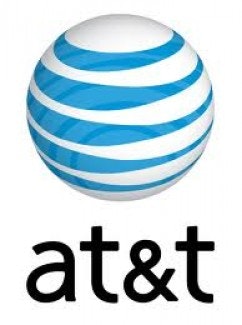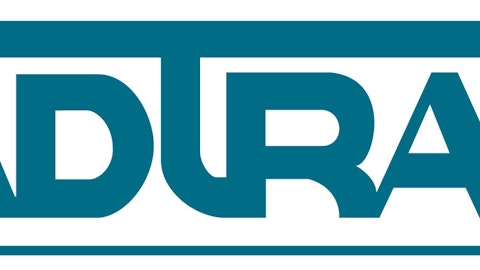AT&T Inc. (NYSE:T) tried to buy T-Mobile but got shot down by the U.S. government. International acquisitions have been the rumor lately, and that isn’t as far fetched as the corporate denials suggest.
Getting Bigger
The telecommunications industry is all about scale. The bigger you are the easier it is to compete and the larger your recurring revenue stream. The desire for scale, however, often bumps up against the concern about monopoly powers.
Right now, the two big players in the U.S. telecom space are AT&T Inc. (NYSE:T) and Verizon Communications Inc. (NYSE:VZ). Both have grown via acquisitions over the years. However, interestingly enough, both were formerly part of AT&T before the government broke the company up into smaller regional players because of antitrust concerns. While today’s AT&T Inc. (NYSE:T) is vastly different from the AT&T of old, the brand’s monopoly stigma is still strong.
Shot Down
AT&T was looking to leapfrog Verizon as the largest cell phone company in the United States by buying T-Mobile. The purchase would have brought both customers and spectrum to support increasing data use. However, the government took umbrage to the idea of AT&T resting atop the cell phone heap and AT&T eventually dropped the deal in late 2011.
That forced AT&T into gorilla mode in its search for spectrum, as it went on to make smaller spectrum deals. However, it also left it playing number two to Verizon. Although AT&T Inc. (NYSE:T)’s top line has been fairly solid, it is now fighting Verizon and smaller competitors that have bulked up, such as T-Mobile and its subsequent merger with MetroPCS.
Ma Bell has hunkered down and is working to regain some of the momentum it has lost of late, offering trade-in options and discounted plans for tablets. This should lead to stronger near-term subscriber numbers but will pressure margins, too. So it goes in the battle for market share in a mature market.
What it Really Needs
What AT&T Inc. (NYSE:T) really needs, however, is a good old acquisition to jolt it into growth mode again. There was a rumor that the company would team up with, of all companies, Verizon to buy Vodafone Group Plc (ADR) (NASDAQ:VOD). Verizon would have received the 45% of Verizon Wireless that it doesn’t own and AT&T would have gotten the rest of the company.
Overnight, AT&T would have become a global telecom powerhouse, with operations in around 30 countries, including mature markets like Spain, the United Kingdom, Germany, and Italy. However, the real diamond in the rough would have been gaining access to emerging markets like India and Africa. This deal would be huge, but rife with risk.
For example, the mature markets Vodafone serves are largely mired in recession. That would make an ownership transition even more difficult. The emerging markets, while offering huge growth prospects, are underdeveloped and a key focus for a lot of companies. Just getting in the door isn’t a guarantee that AT&T Inc. (NYSE:T) could make a go of it.
Interestingly, Vodafone Group Plc (ADR) (NASDAQ:VOD) is a good option for investors looking for a high-yielding telecom play. The shares yield around 7.2%, and it has notable growth prospects in emerging markets. The latest buzz is that Verizon will try to buy Verizon Wireless, at a cost of around $100 billion. That’s a lot of money that Vodafone can put toward building its business or returning value to shareholders. Even if a deal doesn’t get done, Verizon Wireless is paying billions in dividends to Vodafone Group Plc (ADR) (NASDAQ:VOD). This looks like a win-win for Vodafone shareholders.
The Latest Idea
The most recent merger rumor is that AT&T Inc. (NYSE:T) is interested in Telefonica Brasil SA (ADR) (NYSE:VIV). That would quickly give AT&T a dominant position in Latin America and other Spanish speaking nations. This Spanish telecom giant, however, also has operations in mature markets like Germany, the United Kingdom, and Ireland. But the real benefit to AT&T would be Telefonica Brasil SA (ADR) (NYSE:VIV)’s central and south American businesses. That would extend AT&T from its home market south in a big way and fit logically with the U.S. operation.
That said, these markets are one of the reasons why investors should like Telefonica Brasil SA (ADR) (NYSE:VIV) even without an AT&T deal. While the company’s top-line fell slightly during the 2007 to 2009 recession, it has been on a largely upward slope otherwise over the past decade. The shares yield around 6.8% and, despite concerns about the weak mature markets in which it operates, the long-term opportunity seems fairly solid in Latin America.
Living Alone
While AT&T Inc. (NYSE:T) is living alone today, the idea of it shacking up isn’t far fetched since growth in the U.S. market will be slow at best, and competition will be fierce. This reality is part of the reason why the number two player has been trading at a yield discount to Verizon. However, with a one percentage point yield difference between the two, higher yielding AT&T shares are probably a better option today.
While there may be no truth to the rumors, don’t discount them totally. The next deal AT&T makes could be transformational.
The article This Telecom Giant Is Still Searching for Growth originally appeared on Fool.com and is written by Reuben Brewer.
Reuben Brewer has no position in any stocks mentioned. The Motley Fool recommends Vodafone. Reuben is a member of The Motley Fool Blog Network — entries represent the personal opinion of the blogger and are not formally edited.
Copyright © 1995 – 2013 The Motley Fool, LLC. All rights reserved. The Motley Fool has a disclosure policy.






